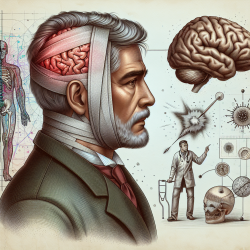The COVID-19 pandemic has significantly impacted mental health worldwide, particularly among youth. The increase in depressive symptoms and alcohol use among young people has become a pressing public health concern. As traditional mental health resources are stretched thin, innovative solutions are needed to address these challenges. One promising avenue is the use of mobile applications (apps) as a scalable intervention to support mental health in youth.
The Role of Mobile Apps in Mental Health
Mobile apps offer an accessible and non-judgmental platform for mental health support. With over three billion smartphone users globally, the potential reach of mobile health apps is immense. These apps can provide self-management tools, cognitive training, skill-building exercises, and even connect users with peer support or healthcare professionals.
A systematic review titled "PROTOCOL: Mobile apps to reduce depressive symptoms and alcohol use in youth: A systematic review and meta-analysis" by Magwood et al. explores the effectiveness of these digital interventions. The study highlights the potential of mobile apps to reduce psychological distress through accessible technology-based resources.
Key Findings from the Research
- Accessibility: Mobile apps provide mental health resources that are readily available to youth, overcoming barriers such as geographic location and financial cost.
- Anonymity: The discretion offered by digital platforms can encourage youth who might otherwise avoid seeking help due to stigma.
- Diverse Functionality: Apps can include features like symptom tracking, cognitive exercises, and skill training, tailored to individual needs.
Implementing Mobile Apps in Practice
The findings from this research suggest several ways practitioners can integrate mobile apps into their therapeutic practices:
- Prescribing Apps: Encourage the use of specific apps that align with therapeutic goals, providing patients with tools for self-management and monitoring.
- User Education: Educate youth on how to effectively use these apps as part of their overall mental health strategy.
- Monitoring Progress: Use app-generated data to track patient progress and adjust treatment plans accordingly.
The Need for Further Research
This systematic review also underscores the need for ongoing research into the long-term effectiveness of mobile apps in managing mental health conditions among youth. Future studies should consider factors such as gender, socioeconomic status, and cultural differences to ensure equitable access and outcomes.
The integration of mobile technology into mental health care represents a significant shift towards more personalized and accessible treatment options. As this field continues to evolve, practitioners are encouraged to stay informed about new developments and consider how digital tools can enhance their practice.










